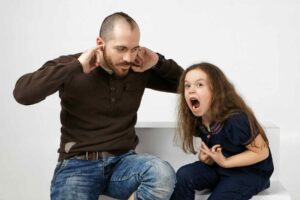Math games are a must-have in your child’s learning and development routine. These activities boost memory, logical thinking, and overall brain development.
But which logic games are right for your child? We’ve put together lists of math games by age, plus tips on how to introduce them into your child’s routine.

Ages 4-6
This is when kids start actively learning math. It’s the perfect time to spark interest in numbers through games and teach the basic rules of counting.
Math games for this age don’t just teach counting. They also develop spatial thinking, understanding of shapes and sizes, and the ability to compare objects.
Start with short sessions — 10–15 minutes a day — and gradually increase the difficulty. Be sure to celebrate daily successes!
At this early stage, it’s crucial not to discourage your child. Good game ideas include:
- "Counting fruit"
- “Shape Puzzles”
- “Multiplication Lotto (2s and 3s)”
The game "Multiplication Bingo 2 and 3."
Drag the answer from the bottom block to the corresponding expression at the top.
Click "Check" to see the result.
7-10 years old
By now, kids have the basics — it’s time to step up the challenge! Introduce games that involve logic and more complex thinking.
If presented the right way, these games become something kids look forward to — and math becomes a subject they enjoy and succeed in.
Logic and arithmetic games boost focus and even help with other skills, like language. You may notice improvements in reading and handwriting too.
Recommended games for this age group:
- “Math Chess” (4×4 board)
- “Math Quests”
- “Coins and Change”
"Coins and change" game
Drag the coins to each field to make up the specified amount. Press "Check" to see the result.
11-14 years old
Now it’s time for advanced logic puzzles and strategy. Teens are preparing for exams and real-life problem solving.
Use complex brainteasers to develop logical thinking and math skills. Try these:
- “Classic Sudoku” (start with 6×6, move up to 9×9)
- “Code Locks”
- “Division Quests”
The game of "Sharing Quest"
Find which numbers are divisible by the given divisors. Drag the numbers to the matching divisors. Then click "Check".
How to Organize Game Time
Math and logic games should be regular, but not feel like another school lesson.
Spend 15–20 minutes a day playing, but don’t stick to a strict schedule — just play when it’s convenient.
Make math games a family tradition! It’s a great way to bond — and remember, don’t scold kids for mistakes. It’s still a game.


At Palme School, we teach kids not only Russian but also math — all in a playful format.
Children aged 4 to 14 gain age-appropriate math skills through games, stories, and more. Our students watch movies and cartoons, read books, chat with friends, and have fun — all while learning Russian and becoming bilingual.
Our online math lessons are also game-based. No boring lectures — kids are excited to join every class!
For young kids, it’s the perfect way to get ready for school. For older children, it’s a chance to lead their class in math and gain essential knowledge for the future. Sign up for a free tour and trial lesson using the form below!







